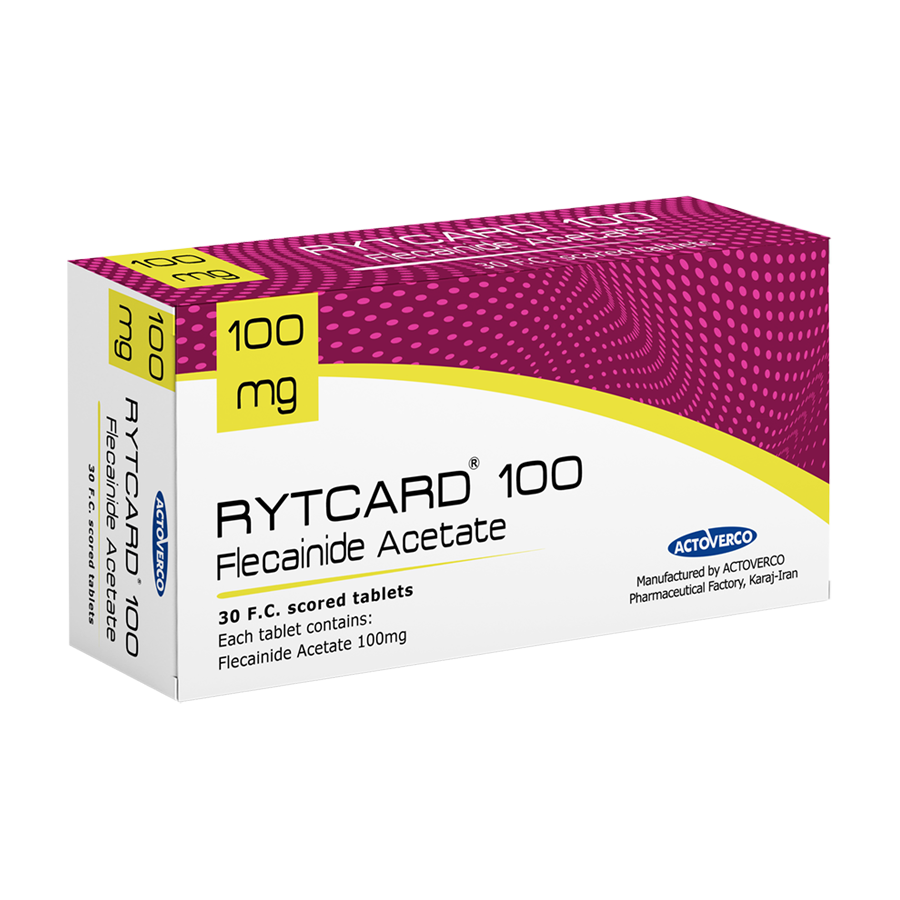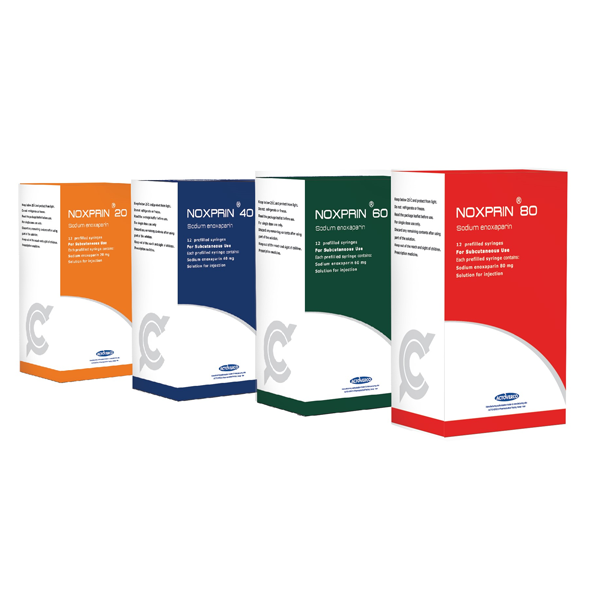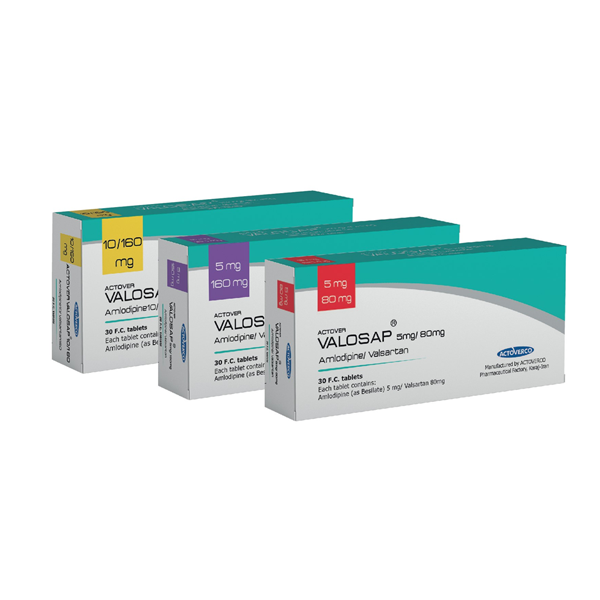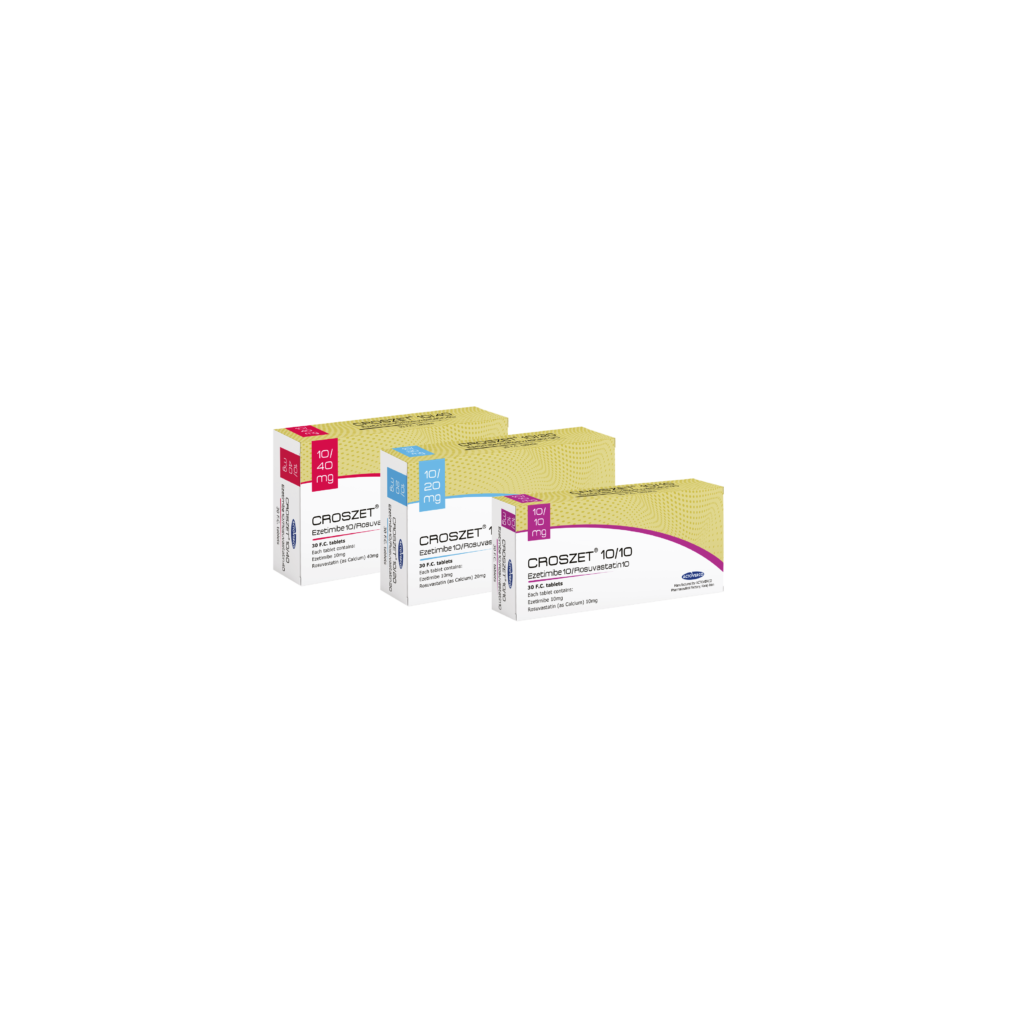Valsacor (Valsartan)
Category: Cardiovascular Drugs
Product Description:
Valsacor is brand name of drug called Valsartan and manufactured by Actoverco pharmaceutical factory under license of KRKA, Slovenia.
Valsacor (valsartan) is an antihypertensive drug belongs to Angiotensin II Receptor Blockers (ARBs).
Product Introduction
Dosage form:
Scored film coated tablets 80, 160 mg
What is Valsacor (valsartan) used for?
- It is used to treat high blood pressure;
- It is used to treat heart failure (weak heart);
- It is used to help heart function after a heart attack;
- It may be given to you for other reasons.
Important notes before taking Valsacor (valsartan):
- Tell your doctor or pharmacist if you have an allergy to valsartan or any other part of this drug.
- Tell your doctor or pharmacist if you are allergic to any drugs like this one, any other drugs, foods, or other substances. Tell your doctor about the allergy and what signs you had, like rash; hives; itching; shortness of breath; wheezing; cough; swelling of face, lips, tongue, or throat; or any other signs.
- Tell your doctor or pharmacist if you have kidney problems.
- Tell your doctor or pharmacist if you are taking a drug that has aliskiren in it and you also have diabetes or kidney problems.
- If you are breast-feeding or plan to breast-feed.
- Tell your doctor and pharmacist about all of your drugs (prescription or OTC, natural products, vitamins) and health problems. You must check to make sure that it is safe for you to take this drug with all of your drugs and health problems. Do not start, stop, or change the dose of any drug without checking with your doctor.
Important notes while taking Valsacor (valsartan):
- Tell all of your health care providers that you take this drug. This includes your doctors, nurses, pharmacists, and dentists.
- Avoid driving and doing other tasks or actions that call for you to be alert until you see how this drug affects you.
- To lower the chance of feeling dizzy or passing out, rise slowly if you have been sitting or lying down. Be careful going up and down stairs.
- It may take several weeks to see the full effects.
- Check your blood pressure as you have been told.
- Have laboratory tests checked as you have been told by the doctor.
- If you are taking a salt substitute that has potassium in it, a potassium-sparing diuretic (eplerenone, triamterene, spironolactone, amiloride), or a potassium product, talk with your doctor.
- If you are on a low-salt or salt-free diet, talk with your doctor.
- If you are taking this drug and have high blood pressure, talk with your doctor before using OTC products that may raise blood pressure. These include cough or cold drugs, diet pills, stimulants, ibuprofen or like products, and some natural products or aids.
- If you are taking lithium, talk with your doctor. You may need to have your laboratory tests checked more closely while you are taking it with this drug.
- Talk with your doctor before you drink alcohol.
- Be careful in hot weather or while being active. Drink lots of fluids to stop fluid loss.
- Tell your doctor if you have too much sweat, fluid loss, throwing up, or loose stools. This may lead to low blood pressure.
Valsacor (valsartan) side effects:
Even though it may be rare, some people may have very bad and sometimes deadly side effects when taking a drug. Tell your doctor or get medical help right away if you have any of the following signs or symptoms that may be related to a very bad side effect:
- Signs of an allergic reaction, like rash; hives; itching; red, swollen, blistered, or peeling skin with or without fever; wheezing; tightness in the chest or throat; trouble breathing, swallowing, or talking; unusual hoarseness; or swelling of the mouth, face, lips, tongue, or throat;
- Signs of kidney problems like unable to pass urine, change in how much urine is passed, blood in the urine, or a big weight gain;
- Signs of a high potassium level like a heartbeat that does not feel normal; change in thinking clearly and with logic; feeling weak, lightheaded, or dizzy; feel like passing out; numbness or tingling; or shortness of breath;
- Very bad dizziness or passing out;
- Swelling in the arms or legs;
- Change in eyesight.
All drugs may cause side effects. However, many people have no side effects or only have minor side effects. Call your doctor or get medical help if any of these side effects or any other side effects bother you or do not go away:
- Feeling dizzy, tired, or weak;
- Stomach pain or diarrhea;
- Back pain;
- Joint pain;
- Headache;
- Flu-like signs.
These are not all of the side effects that may occur. If you have questions about side effects, call your doctor. Call your doctor for medical advice about side effects.You may report side effects to your national health agency.
What do I do if I miss a dose?
Take a missed dose as soon as you think about it. If it is close to the time for your next dose, skip the missed dose and go back to your normal time.
Do not take 2 doses at the same time or extra doses.
How do I store and/or throw out this drug?
- Store at room temperature.
- Store in a dry place. Do not store in a bathroom.
- Keep all drugs in a safe place. Keep all drugs out of the reach of children and pets.
- Throw away unused or expired drugs. Do not flush down a toilet or pour down a drain unless you are told to do so. Check with your pharmacist if you have questions about the best way to throw out drugs.













